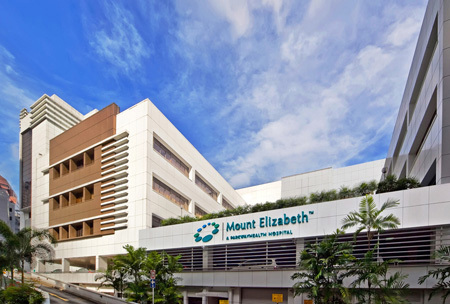
Dr Dennis T H Lim
Head and Neck General SurgeonMBBS, M.Med (Surg), FRCS (Edin), FRCS (Glas), FAMS
A thyroidectomy, or thyroid surgery, involves removing part or all of the thyroid gland to treat conditions such as thyroid cancer, goitre or hyperthyroidism. The procedure usually takes a few hours, and most patients remain in the hospital for one to two days for monitoring and initial recovery.
Once discharged, home care plays a vital role in healing and long-term outcomes. With proper aftercare and close guidance from your surgeon, you can support a smooth recovery and safely return to your usual activities. Let us explore what to expect after thyroid surgery and how to manage your recovery effectively.
Following a thyroidectomy, it is normal to experience some temporary side effects as your body heals and adjusts. Most of these symptoms gradually improve with time and proper medical care. Here are some of the most common effects you may notice:
The incision site may appear slightly raised with mild swelling and bruising. This is part of the normal healing process and usually improves within a few days to weeks.
A mild sore throat or occasional coughing is common after surgery. This typically lasts 4–5 days and is caused by irritation from the breathing tube used during the procedure.
Some patients may feel a lump in the throat or mild discomfort when swallowing. This sensation usually subsides as healing progresses.
Temporary hoarseness or a weak voice can occur due to the surgery’s proximity to the vocal cords. Most patients regain their normal voice as the area recovers.
Stiffness or tightness in the neck is common, often due to muscle strain or positioning during surgery. Gentle stretching, as advised by your doctor, can help relieve discomfort.
Making certain lifestyle adjustments after a thyroidectomy is essential for proper healing and to reduce the risk of complications. Following your doctor’s advice closely will help you recover safely and comfortably.
Proper wound care is vital for preventing infection and promoting healing. Keep the incision site clean and dry, and avoid scrubbing the area while bathing. Gently pat it dry instead. Protect the wound from direct sun exposure during the healing phase to minimise scarring. Be sure to follow your doctor’s instructions for dressing changes.
In the first few days after surgery, stick to soft foods to avoid irritating a sore throat. Staying well-hydrated is also important for recovery. Include calcium-rich foods such as dairy products and leafy greens, and ensure you get sufficient vitamin D through diet or supplements to help your body absorb calcium effectively.
Take pain medication as prescribed to manage discomfort. Some patients may also need thyroid hormone replacement or calcium supplements, which should be taken exactly as directed by the doctor to maintain proper hormone and mineral balance.
Get plenty of rest in the early recovery period. Avoid heavy lifting and strenuous activities until your surgeon confirms it is safe to resume them. You should also refrain from driving until you can comfortably turn your head from side to side without pain or stiffness.
Your voice may feel weak or hoarse after surgery. Give it time to recover by resting your voice as much as possible, avoiding yelling and limiting excessive talking.
Light walking is encouraged to promote circulation and support recovery, but avoid overexertion. Gentle neck stretches and maintaining good posture, as advised by your doctor, can help relieve stiffness and improve mobility.
Attending all scheduled follow-up appointments is crucial for monitoring your recovery. Regular blood tests may be needed to track thyroid hormone and calcium levels, ensuring they remain in the optimal range for your health.
While a thyroidectomy is generally safe, there are potential complications to be aware of during recovery. Seek immediate medical attention if you experience any of the following:
Maintaining open communication with your surgeon or oncologist is essential for a smooth recovery. If you notice any unusual symptoms or changes, do not hesitate to reach out for advice and care.
If you have been diagnosed with a thyroid condition, consulting with a specialist ensures you receive expert guidance and personalised treatment. Our team is here to support you through every stage of your recovery, providing compassionate care and the confidence you need to heal well. Contact us today to schedule an appointment.
Head and Neck General SurgeonMBBS, M.Med (Surg), FRCS (Edin), FRCS (Glas), FAMS
Dr Dennis T H Lim is a specialist in head and neck surgical oncology, with expertise in cancers of the thyroid, parotid gland, head and neck, and melanoma. Trained at the Memorial Sloan-Kettering Cancer Center, New York, Dr Lim previously served as Senior Consultant Surgical Oncologist at the National Cancer Centre and Singapore General Hospital. He now runs a private practice, providing personalised, multidisciplinary care using advanced surgical techniques to optimise outcomes for patients with head and neck cancers.

Need clarity and guidance for cancer care?
Please reach out to us.
